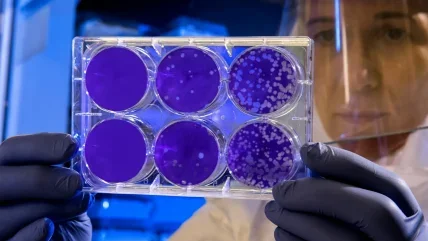
UK-based medical laboratory company EDX Medical has developed a new ‘super test’ for prostate cancer to advance screening and diagnosis.
The test is designed to detect cancerous cells and identify signs of early or late-stage cancer. It also determines whether the cancer is slow-growing or aggressive.
Additionally, it reveals genetic and hereditary risks for patients. This innovation aims to accelerate personalised treatment for prostate cancer.
The new test is said to analyse the most comprehensive set of clinically validated prostate-related biomarkers in blood and urine samples.
Using a proprietary artificial intelligence (AI)-driven algorithm, it detects early signs of cancer and key features that help guide treatment decisions. The algorithm generates a detailed report for doctors.
EDX Medical chief executive Mike Hudson said: “I’m confident that the EDX testing strategy will define a new standard for the early detection and characterisation of emergent, prostate cancer, and provide unique insights to guide optimal treatment selection.”
The medical laboratory company expects the test to deliver high accuracy, with sensitivity and specificity between 96% and 99%. It will work across a broad age range and ethnic groups.
The non-invasive ‘super test’ will detect different subtypes of prostate cancer and highlight key features, particularly for patients in higher-risk, non-Caucasian groups.
The test uses a ‘multi-omics’ approach, combining proteomic, transcriptomic, genetic, and epigenetic biomarkers for detailed biological data. It also incorporates phenotypic and symptom data, which are analysed by an AI algorithm.
EDX Medical said that the prostate cancer test offers significant benefits for men aged 45 to 70, as well as healthcare providers. It can reduce the need for unnecessary MRI scans and invasive digital rectal exams (DREs).
The test is being developed at EDX Medical’s Cambridge laboratory, which specialises in digital diagnostic tools for cancer, cardiovascular diseases, and infectious diseases.
The company has filed a patent application for the test and its AI algorithm with the European Patent Office.
EDX Medical’s scientific team will validate additional clinical data in the coming months. The company plans to seek regulatory approval from the Medicines and Healthcare Products Regulatory Agency (MHRA) and the US Food and Drug Administration (FDA).
The test is expected to launch in late 2025 or early 2026.
In September 2024, EDX Medical forged a distribution agreement with US-based AI TechBio and precision medicine company Caris Life Sciences.






